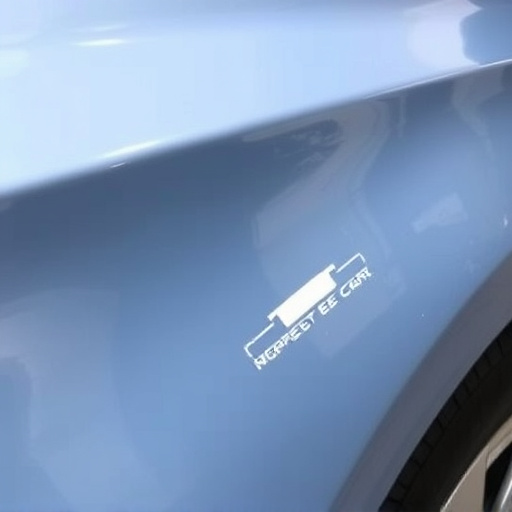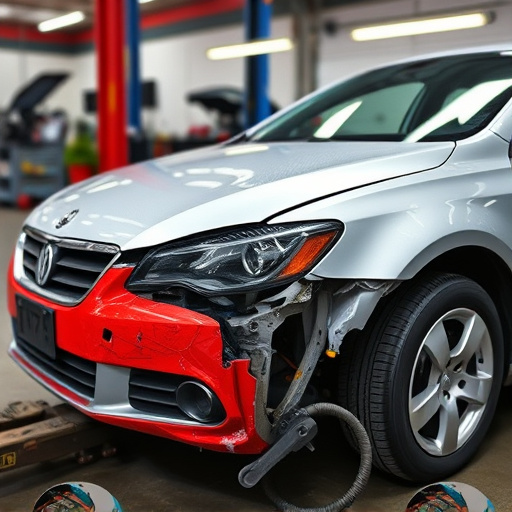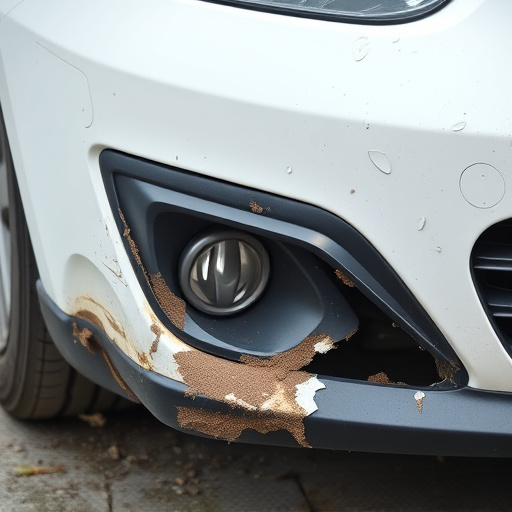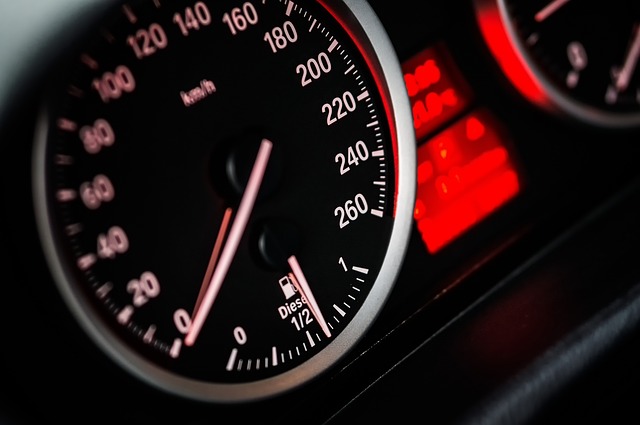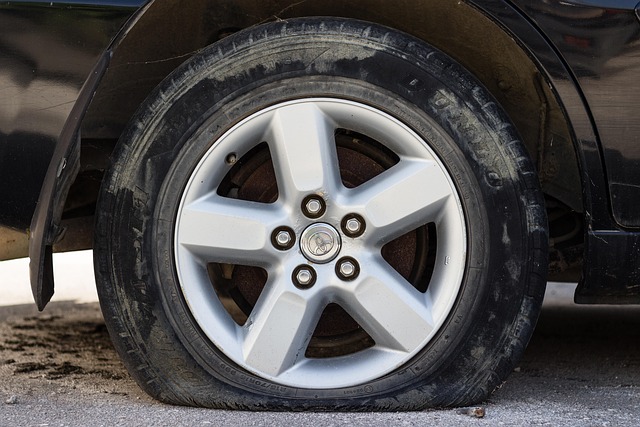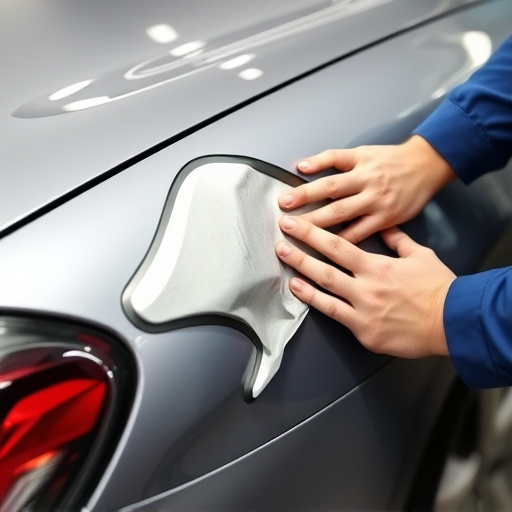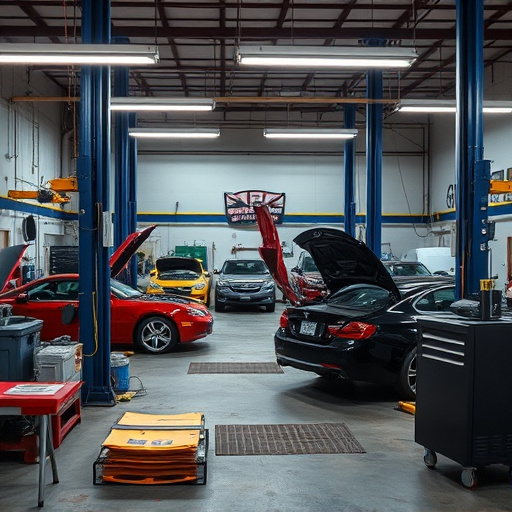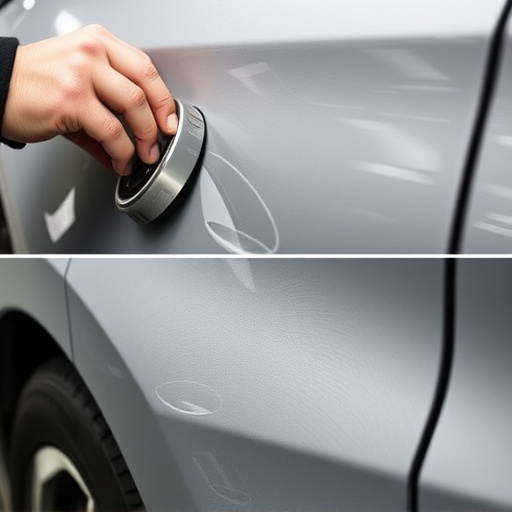Mercedes rain sensors can fail due to dirt, aging, or damage, impacting visibility and wiper efficiency. Proper adjustment after car washes or repairs is crucial for optimal performance. Severe issues may require professional Mercedes collision repair. Regular maintenance, including cleaning, inspection, and protective coating, prevents failures and enhances safety during adverse weather.
After a car wash, Mercedes rain sensors can fail, leading to incorrect wiper activation. This article guides you through adjusting your Mercedes rain sensors post-car wash to ensure optimal performance. We’ll discuss common causes of failure and provide step-by-step instructions for calibration. Additionally, learn preventive measures to maintain these sensitive components, ensuring a seamless driving experience with effective windshield wiper control in all weather conditions.
- Understanding Mercedes Rain Sensor Failure
- Adjusting Rain Sensors Post-Car Wash
- Preventive Measures for Future Sensor Maintenance
Understanding Mercedes Rain Sensor Failure

Mercedes rain sensors are designed to detect water on the windshield and automatically adjust wiper speed accordingly for optimal cleaning performance. However, like any component, they can fail over time due to various factors such as dirt buildup, aging, or damage from road debris. When a Mercedes rain sensor fails, it may exhibit symptoms like ineffectual wiper operation, erratic adjustments, or complete malfunction. This not only compromises the safety and visibility of the driver but also requires prompt attention to prevent further issues during inclement weather conditions.
Understanding the specific nature of the failure is crucial for effective Mercedes rain sensor adjustment after a car wash or collision repair services. In many cases, simple cleaning or replacement of the sensor can resolve the problem. However, if the sensor has sustained damage from a collision or other severe incident, it may require professional mercedes benz collision repair to ensure precise restoration of functionality. Collision repair services specializing in Mercedes vehicles have the expertise and tools needed to diagnose and rectify these issues, ensuring safe and effective rain sensor operation for the long-term benefit of the vehicle’s owner.
Adjusting Rain Sensors Post-Car Wash

After a car wash, it’s common for Mercedes rain sensors to require adjustment due to potential disruption during the cleaning process. To fine-tune these sensors, drive at a moderate speed with the wipers activated. Observe how they respond to raindrops or water spray; this will help identify any misalignment. Many modern Mercedes vehicles have advanced sensor systems, so accurate calibration is key for optimal performance.
If you notice any irregularities or if the sensors fail to operate effectively post-wash, consider visiting an automotive body shop specializing in scratch repair and vehicle collision repair services. These professionals can perform precise adjustments and ensure your Mercedes’ rain sensing system functions at its best, providing enhanced safety and driving comfort, especially during adverse weather conditions.
Preventive Measures for Future Sensor Maintenance

To prevent future sensor failures and ensure optimal Mercedes rain sensor adjustment, regular maintenance is key. After a car wash, it’s crucial to inspect the sensors for any debris or damage. A simple cleaning with a soft cloth and water can often remove accumulated dirt or grime. Additionally, checking the sensor’s alignment and ensuring no obstructions from parts like the bumper or car dent repairs can improve their performance. Regular checks will help identify any issues early on, avoiding more complex repairs that may arise from neglect.
For added protection, applying a protective coating designed for automotive sensors can prevent corrosion and debris buildup. This step is especially beneficial if you live in areas with frequent rain or frequent car washes. Remember, keeping your sensors well-maintained not only enhances the safety features of your vehicle but also contributes to smoother operations, ensuring that your Mercedes’ rain-sensing wipers function as intended during every wash.
After understanding the common causes of Mercedes rain sensor failure and adjusting the sensors post-car wash, it’s clear that regular maintenance is key. By taking preventive measures such as gently cleaning the sensors with a soft cloth and ensuring no debris buildup, you can extend the life of your vehicle’s rain-sensing wipers. Remember, proper care and timely adjustments to your Mercedes’ rain sensors will enhance driving safety and keep your car in top condition.
